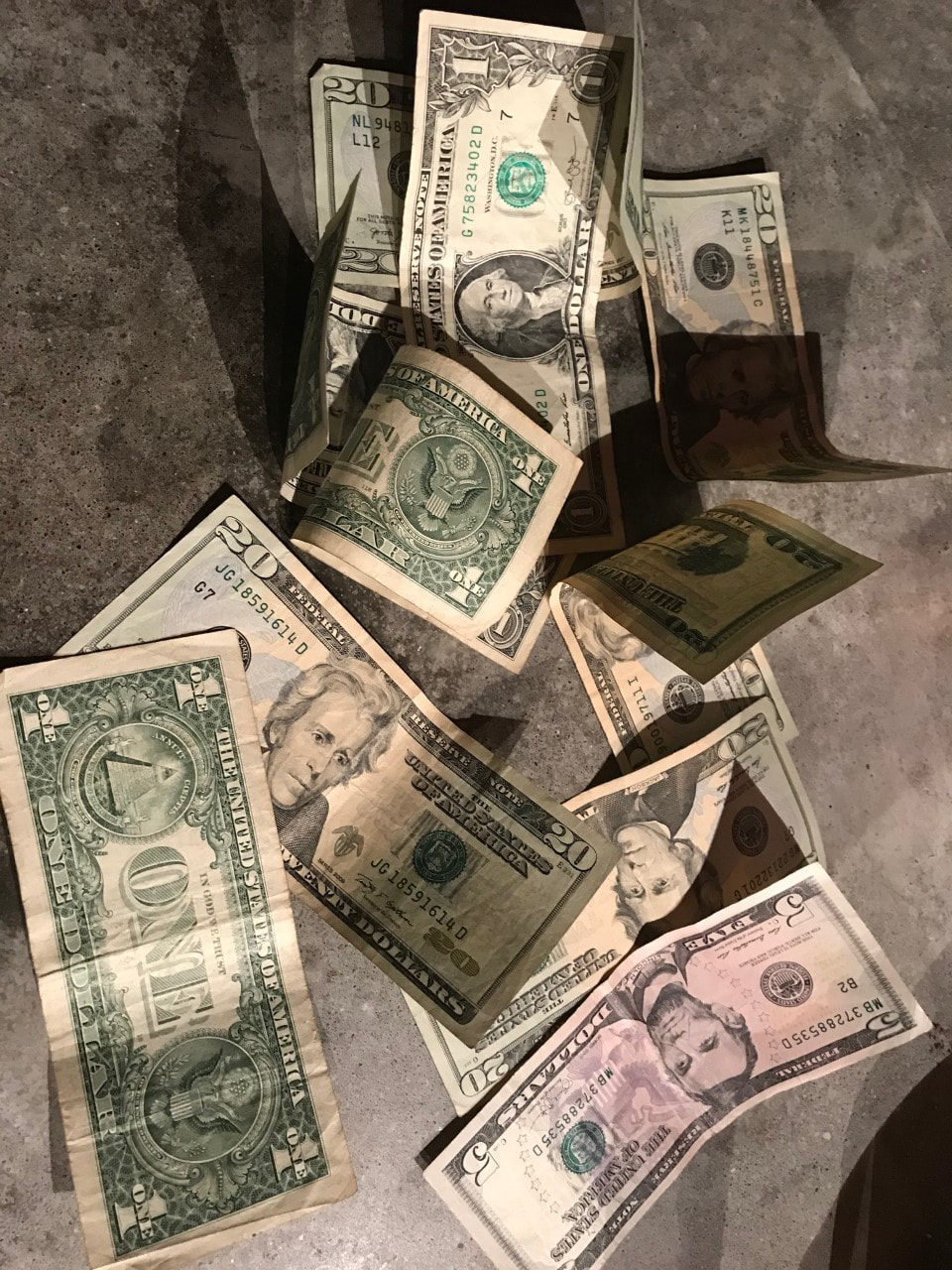
But, what if it was a $20 bill? Or, a $50 or $100 bill? Would that make a difference? What is your level of moral backbone in terms of finding something that you know isn’t yours and should be turned back to its rightful owner?
I don’t think there is a specific answer to that question. Rather, there’s a certain moral grey zone we all play in.
Back in high school, I remember finding a wallet on the street outside the house of a guy a year older than me. He lived there with his uncle, and it was the uncle’s wallet. There was a LOT of cash in it, because I looked. I took it to their front door, rang the bell, a woman answered and I told her the circumstances. She thanked me, took it back, and that was the end of it.
I thought at the time (and still do), that they might have offered me five bucks or something for being so honest. I didn’t “expect” that, but thought they might give me a small reward. I wasn’t offended that they didn’t.
About 25 years ago, I found a $50 bill in a McDonalds bathroom. I didn’t bat an eye. I kept it. My thought process was, “It’s probably some drug dealer’s $50 bill, so who cares?” My second thought was that even if I brought it up to the person at the cash register, they would never get it to the person who lost the money, so what’s the point?
There has to be a certain dollar amount where we would turn in that money to the authorities. Maybe it’s a suitcase filled with twenty-dollar bills. If you found something like that in a shiny metal suitcase, you’d be convinced it was drug money, and you WOULDN’T want to hold onto it. You’d be scared the drug dealers would crush you. “Here, please take this away from me,” you’d tell the police.
Short of a suitcase full of cash, where is your moral backbone to return random cash to its rightful owner. I think something that comes into play is first of all even knowing you can find whose money it was. In the case of me finding the wallet, I checked the address on the drivers license, so I knew it was the house I knocked on. That’s simple.
The equation is more complex when there’s no clear route to who lost the money. You have to trust whoever it is you turn it into – the McDonald’s cash register person; the police; the proprietor of a shop if you found the bill on their floor. And, you don’t know what they’ll do in response to you turning the money in. They might go out and buy a round of drinks at the bar, or take their wife out to dinner. Who knows?
All those thoughts go through your head. A $20 bill? “Hmmm, I’m thinking.” A $100 bill? “I should turn this in. But who do I return it to?”
I will say this, if it’s a $500 bill, it’s probably counterfeit since it was discontinued in 1969. Take that one to the police.